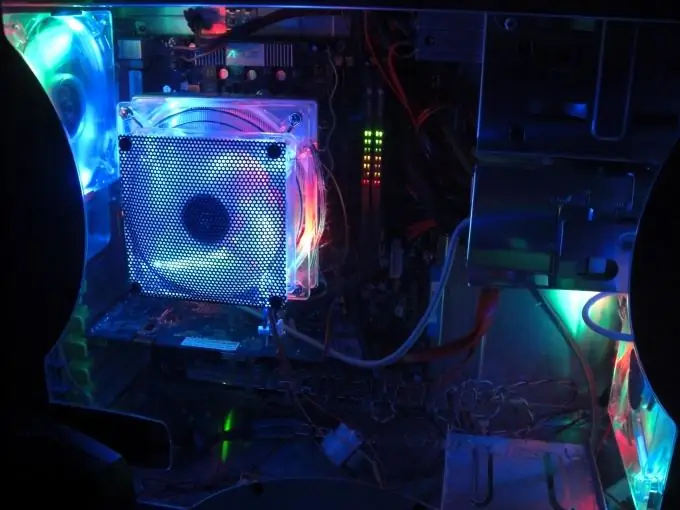The operation of replacing the system kernel can be performed using standard tools of the Microsoft Windows operating system and does not require the use of additional third-party software.

Instructions
Step 1
Click the "Start" button to bring up the main menu of the system and go to the "Control Panel" item to perform the operation of replacing the computer kernel.
Step 2
Select System and Maintenance and select Device Manager.
Step 3
Enter the computer administrator password in the corresponding field in the request window to confirm your authority.
Step 4
Expand the Computer link in the list of the main application window and find the line containing the version of the kernel installed for the processor of this computer.
Step 5
Double click on the found line to open a new dialog box and go to the "Driver" tab.
Step 6
Click the Refresh button and return to the main Start menu to launch the Windows Explorer tool.
Step 7
Specify the item "All programs" and go to the item "Standard".
Step 8
Select Windows Explorer and locate the WINNTSystem32 folder that contains the kernel files for this computer.
Step 9
Make copies of the ntoskrnl.exe and hal.dll files and save them in the same folder as ntoskrnlcopy.exe and halcopy.dll, respectively.
Step 10
Duplicate the work item of the operating system selection menu
multi (0) disk (0) rdisk (0) partition (1) WINDOWS = "Microsoft Windows XP Professional" / fastdetect
and add the /kernel=ntoskrnlcopy.exe /hal=halcopy.dll option after the / fastdetect value.
Step 11
Find the hal.inf file in the windowsinf folder and review its contents.
Step 12
Match the kernels to hal records:
- Standard PC - hal.dll;
- Advanced Configuration and Power Interface (ACPI) PC - halacpi.dll;
- ACPI Uniprocessor PC - halaacpi.dll;
- ACPI Multiprocessor PC - halmacpi.dll;
- Compaq SystemPro Multiprocessor or 100% Compatible - halsp.dll;
- MPS Uniprocessor PC - halapic.dll;
- MPS Multiprocessor PC - halmps.
Step 13
Go to C: WindowsDriverCachei386driver.cab and extract the appropriate file.
Step 14
Make a copy of the extracted file, place it in Windowssystem32, and reference it in the boot.ini file to display the selected kernel in the operating system selection list.






